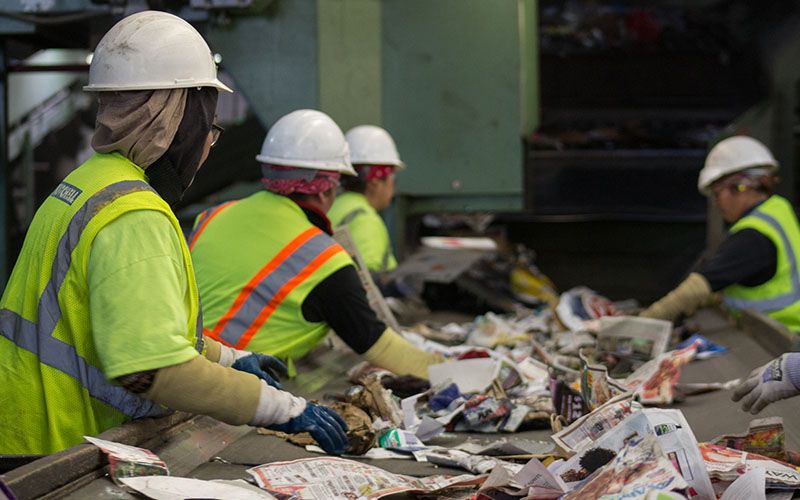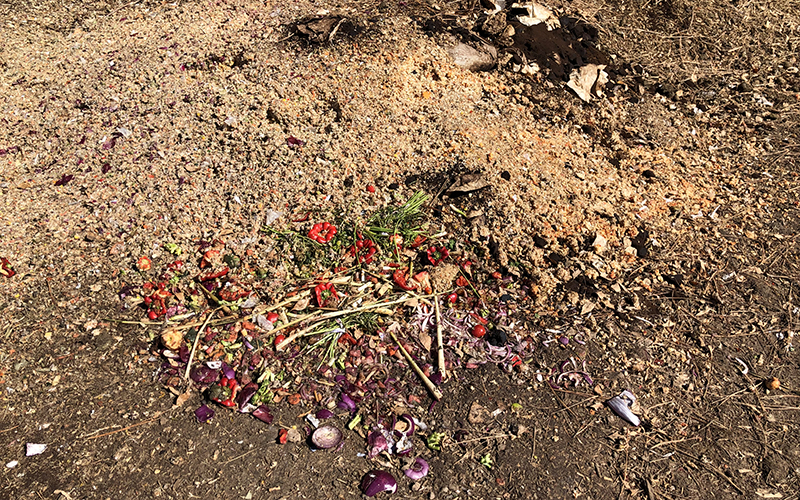
This is how a new pile of compost gets started on NAU’s campus, with raw food scraps and coffee grounds. (Photo by Bryce Newberry/Cronkite News)
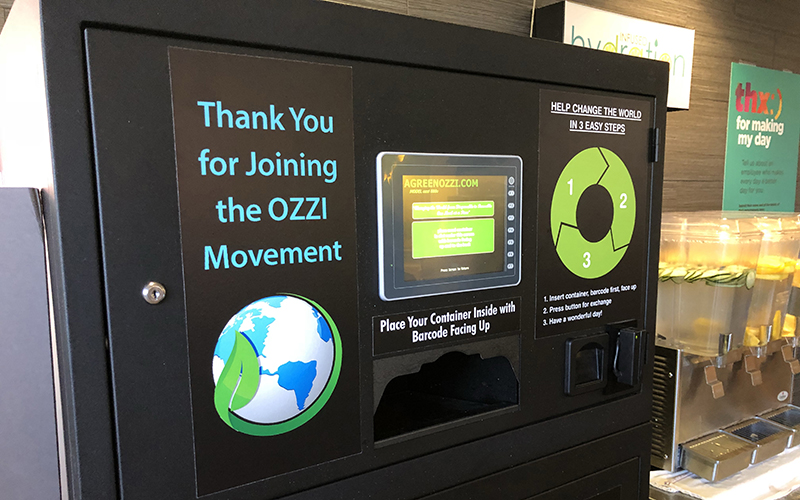
This machine collects reusable food containers and cups after students are done using them, in one of Northern Arizona University’s dining halls. Students pay a one time fee to access the eco-friendly food boxes. (Photo by Bryce Newberry/Cronkite News)
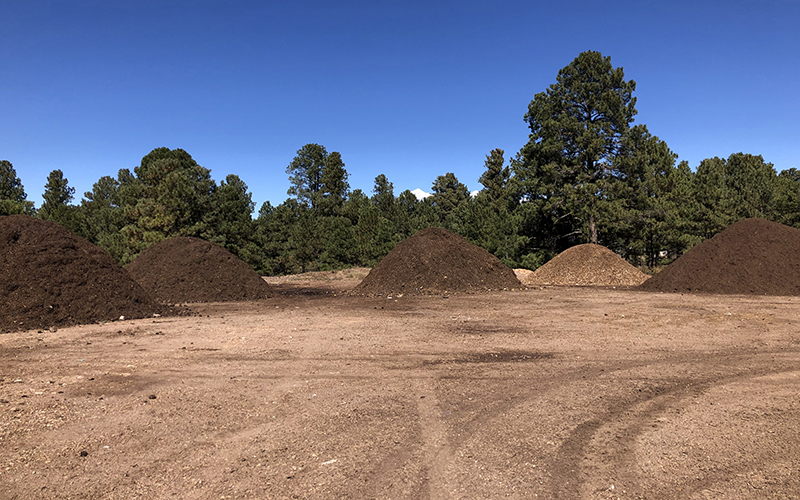
Compost piles are separated by how old each pile is on Northern Arizona University’s campus. The majority of dining hall food waste is used to create these dirt piles. (Photo by Bryce Newberry/Cronkite News)
FLAGSTAFF – Universities in Arizona are stepping up how they handle food waste and single-use plastic. All three of the state’s universities have robust composting programs to reduce what ends up in landfills. But Northern Arizona University has expanded its efforts to include reusable food containers, and it banned plastic straws this year. Now, Flagstaff businesses are taking similar steps.
“I see all of the plastic in the ocean and I really want to make sure NAU isn’t contributing to that at all,” said senior Emerald McCormick, chair of the student run organization NAU Green Fund, which provides funding for projects that reduce the university’s environmental impact. The funds come from a fee NAU students pay for sustainability.
In January, McCormick implemented a system at all the campus dining halls that allows students to use “green” food containers that resemble takeout containers. Students pay a one time $5 fee for a token, which allows them to check out a container. When they’re finished eating, students return the containers to a machine that stores them until they can be washed, and they get their token back.
“A lot of students are really excited for it. That’s why we expanded it all across campus because they kept asking for it,” McCormick said.
Not much of the waste from the food containers goes into the trash. At least 90 percent of NAU’s dining hall food waste is composted. After four stages of processing, the waste ends up in piles of compost hidden behind campus.
“All that soil just goes back to NAU,” said NAU campus-dining sustainability coordinator Gaby Galvan. “We use it on landscaping. We use it in community gardens. We use it in our greenhouses. It goes to the community members. So it’s just all recycled back into our community.”
Composting saves the university on garbage disposal costs. Last year, more than 300,000 pounds of food waste made it into the compost piles. That number could be more this year, as campus dining now uses straws that are 100 percent compostable.
Galvan said it was “pretty easy” to get rid of small, disposable plastic on campus, “and also at the same time create a behavior change, and get students to start thinking if they really need all of the plastic disposables that they use throughout the day.”
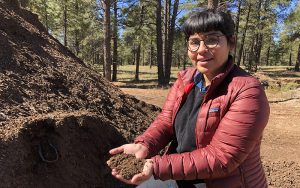
Gaby Galvan is Northern Arizona University’s campus dining sustainability coordinator. At least 90 percent of NAU’s dining hall food waste is composted, and eventual turned into dirt. (Photo by Bryce Newberry/Cronkite News)
The behavior change is spreading to Flagstaff businesses. Laura Diez is the NAU student who wants to get half of Flagstaff businesses straw-free by 2020. She also leads the Straw Free Flag campaign, which is an effort to eliminate single-use plastics.
“I really just am looking for some sort of mindfulness around straws. … Obviously I hope to see those eradicated pretty soon,” Diez said.
One local business, Single Speed Coffee Cafe, no longer uses plastic straws. Instead, patrons can get a paper straw and pay extra for a plastic cup.
“NAU is always going to be a really big influence on all of us and their ban kind of makes it more known to the students as well,” said Zachary Shouse, manager of Single Speed. “It kind of starts to be a normal thing as people go around.”
At least 10 businesses have signed the Straw Free Flag pledge, and about 30 businesses now provide straws by request only, Diez said.
Arizona State University has similar programs in place. Food is composted and plastic straws are not available in dinings halls.
The University of Arizona is exploring alternative straw options, according to Trevor Ledbetter, who directs the Office of Sustainability. The university also has a composting program in partnership with Tucson.
This story is part of Elemental: Covering Sustainability, a new multimedia collaboration between Cronkite News, Arizona PBS, KJZZ, KPCC, Rocky Mountain PBS and PBS SoCal.
Connect with us on Facebook.
